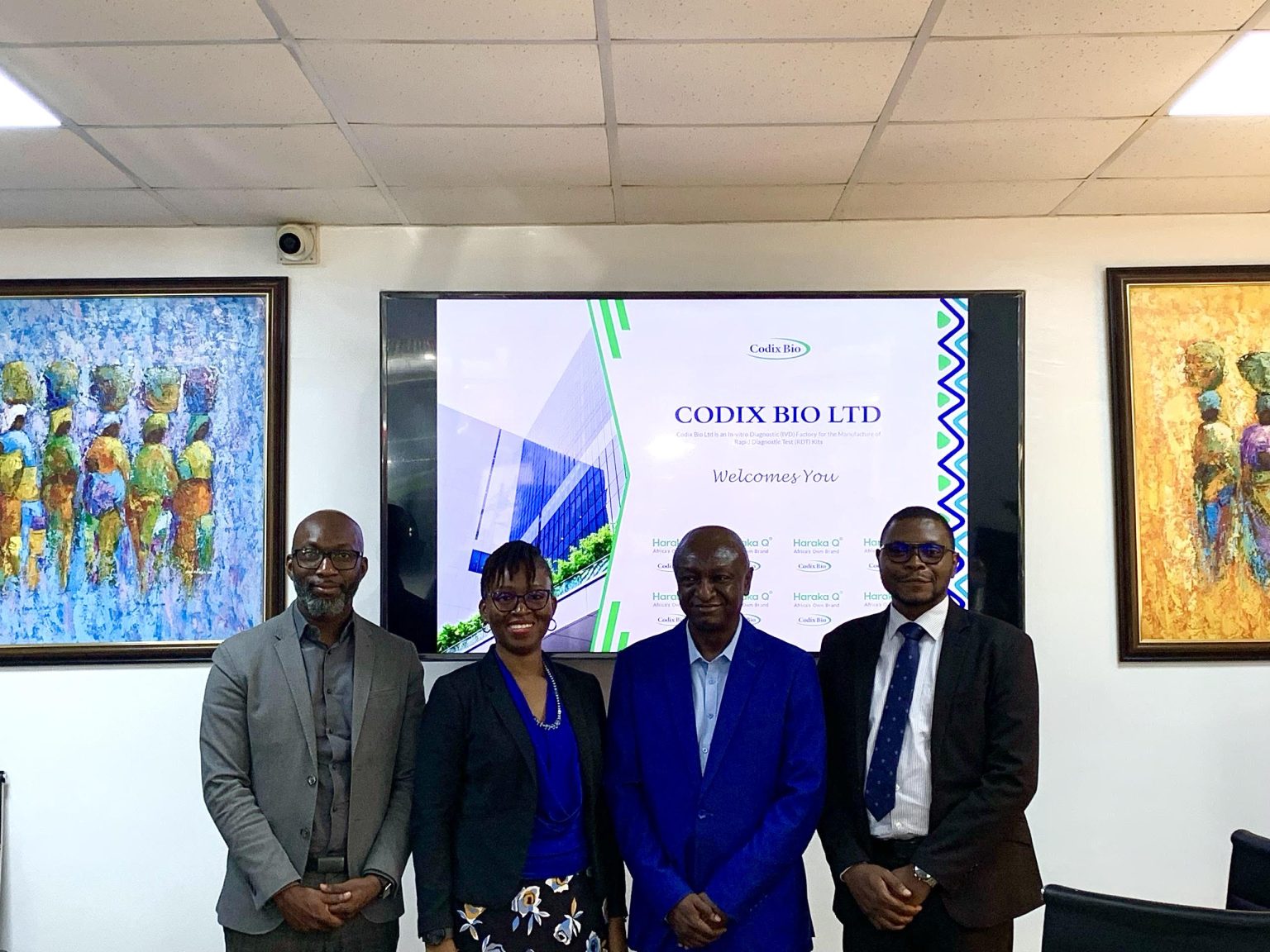In a significant stride towards strengthening Nigeria’s healthcare independence and reducing its reliance on foreign medical imports, leading pharmaceutical firm, Codix Pharma Limited, has unveiled its second in-vitro diagnostics manufacturing facility — Codix Bio — in Sagamu, Ogun State. The facility is focused on the local production of rapid diagnostic test (RDT) kits for Malaria, HIV, HIV/Syphilis combo, Hepatitis B, and Hepatitis C, among others.
This development marks a bold shift in Nigeria’s approach to medical diagnostics, especially in a continent where nearly all RDT kits have historically been imported from Europe, North America, or Asia. Such dependence, according to Codix management, has long left African nations exposed to global supply chain disruptions, inflated costs, and limited access to life-saving diagnostic tools.
Speaking at a media briefing in Lagos, Chief Operating Officer of Codix Pharma, Mary Ogangwu, described the move as a critical step toward achieving healthcare accessibility for all Nigerians, regardless of socioeconomic status or geographic location. She emphasised that early diagnosis remains the cornerstone of effective healthcare, adding that the availability of locally manufactured RDT kits would play a pivotal role in improving health outcomes across the country.
“This is more than just a corporate achievement — it is a statement that African challenges can be solved with African solutions. Codix Bio is a game-changer not only for Nigeria but for the continent’s healthcare future,” Ogangwu said. She noted that the facility was born out of a long-term vision to deepen backward integration and drastically reduce reliance on imported healthcare products.
Recalling the lessons of the COVID-19 pandemic, which exposed deep vulnerabilities in Nigeria’s health infrastructure, Ogangwu said the crisis inspired the company to establish Colexa Biosensor, the first in-vitro diagnostics factory in Sub-Saharan Africa for the production of blood glucose meters and test strips. The launch of Codix Bio is the next major milestone in that journey.
According to her, Codix Pharma is positioning itself to become a leading African health technology company by 2030, fully integrated in the production of diagnostic and medical technologies. Since its establishment in 2008, the company has evolved from its initial focus on diabetes and cardiovascular medications into a full-fledged diagnostic solutions provider, driven by the urgent need for affordable and accessible testing tools across Nigeria and the region.
Highlighting the long-term benefits of local production, Ogangwu noted that domestic manufacturing would help address longstanding affordability challenges and ensure widespread access to essential diagnostic services. “This goes beyond just serving our market — we’re building capacity to serve West Africa and beyond, producing kits that meet international standards of quality and performance,” she explained.
She further lauded recent initiatives by the Federal Government aimed at unlocking the healthcare value chain, including the Presidential Executive Order that exempts select pharmaceutical equipment and goods from import duties and tariffs. According to her, these policies are in line with Codix Pharma’s goal of contributing to Nigeria’s ambition of securing at least 15 percent of Africa’s pharmaceutical market share by 2030, and meeting 70 percent of domestic pharmaceutical demand through local production.
General Manager of Plant Operations at Codix Bio Ltd, Olanrewaju Balaja, added that the facility operates in strict adherence to global manufacturing protocols, including the World Health Organization’s Good Manufacturing Practices. He reiterated that the diagnostic kits produced at the Sagamu plant meet standards approved by the world’s top health regulators, positioning Nigeria as both a self-reliant producer and a potential exporter in the medical diagnostics space.
Industry watchers believe the Codix Bio facility is a timely and transformative investment, offering a sustainable solution to longstanding gaps in diagnostic access and contributing to broader health equity goals across Nigeria and Sub-Saharan Africa.







